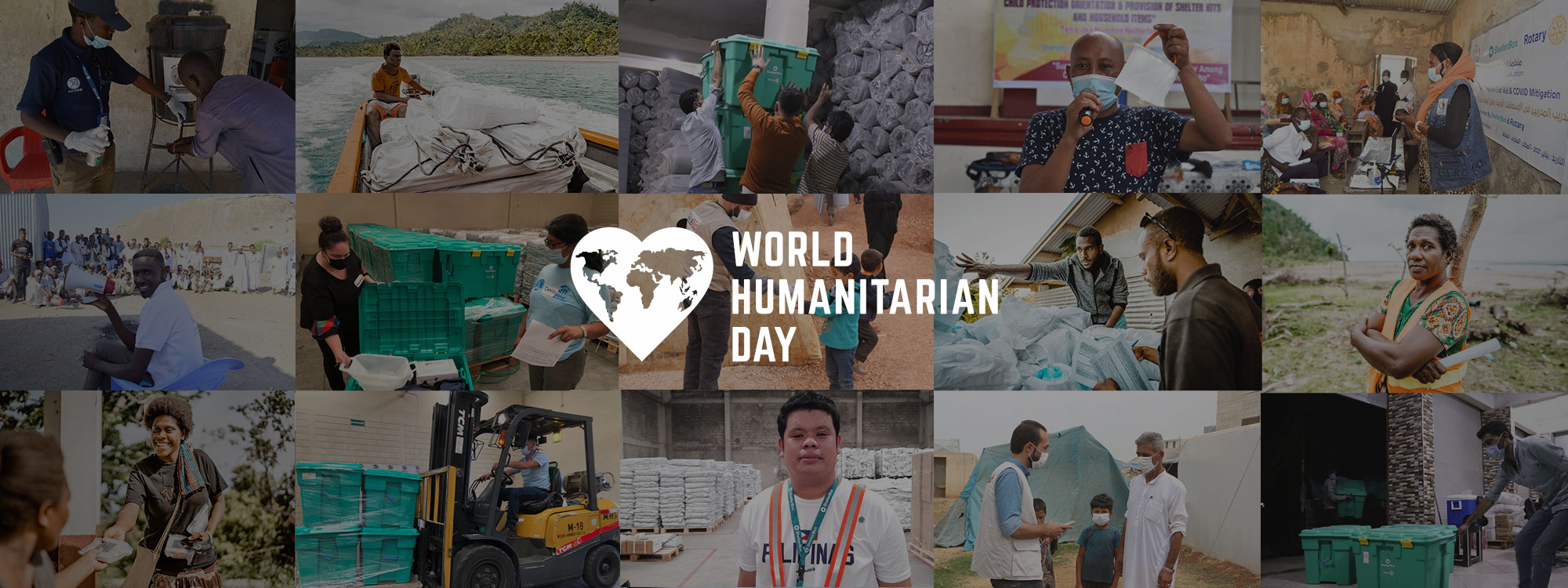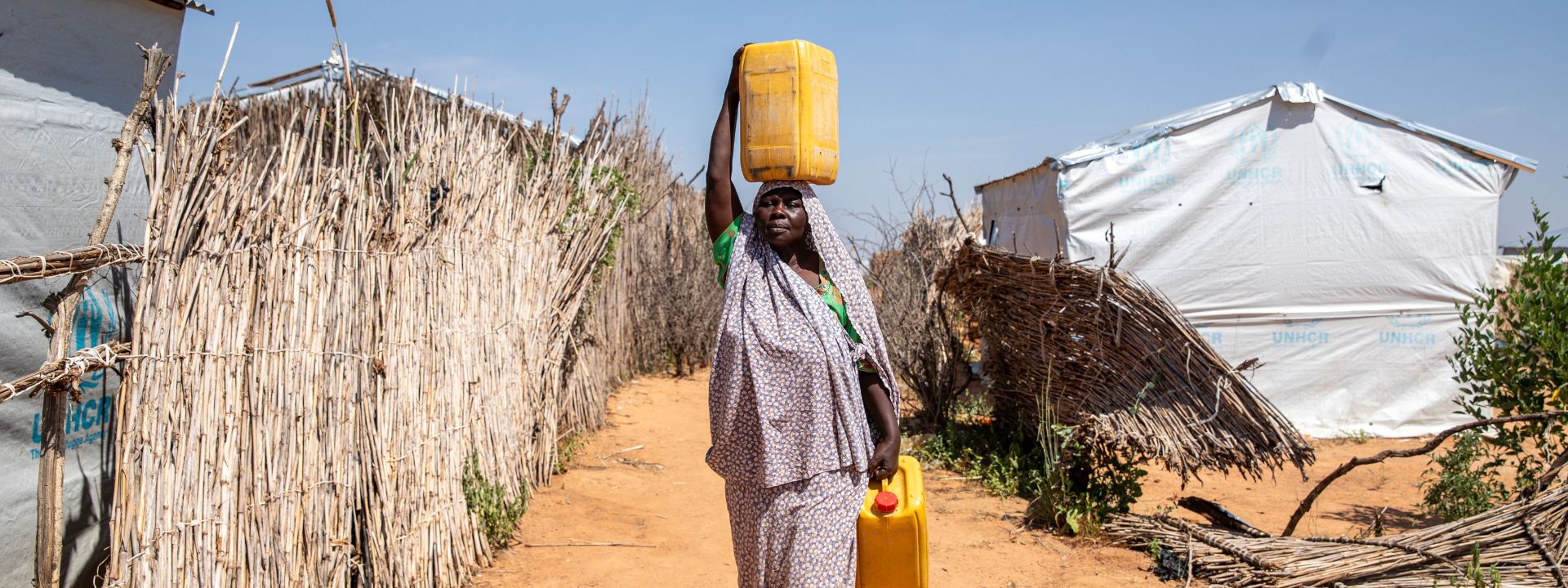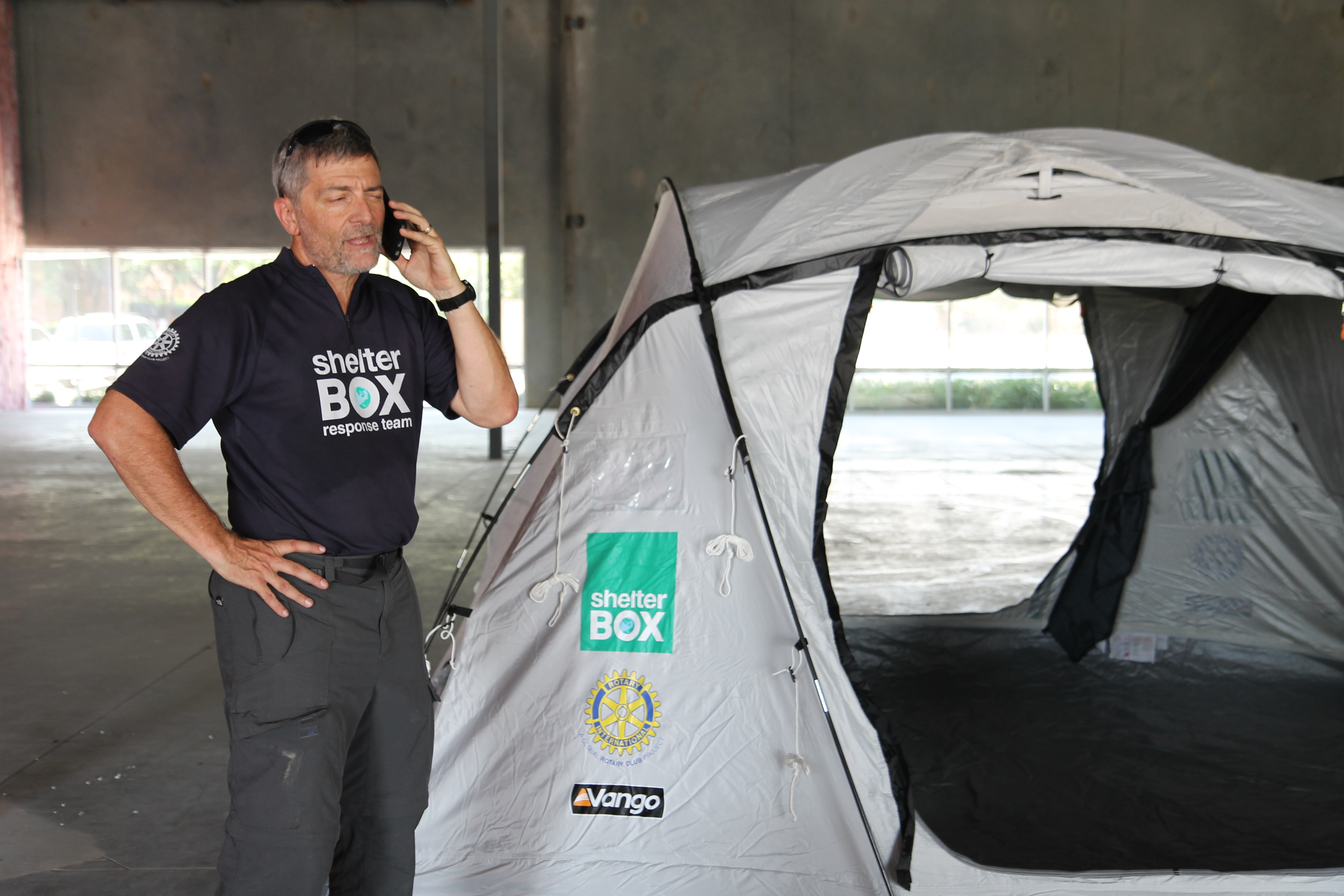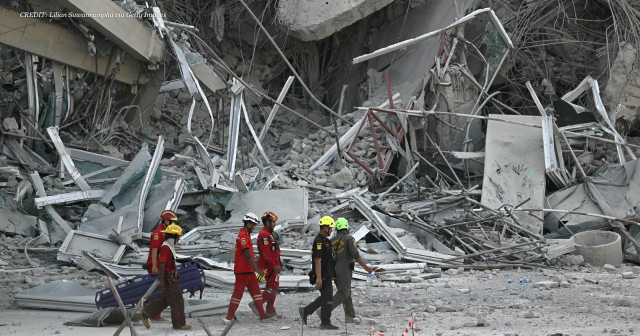
Blog
World Humanitarian Day 2021
What is World Humanitarian Day?
World Humanitarian Day is an international day dedicated to humanitarian workers who have lost their lives or been injured in the course of their work.
Founded by the United Nations General Assembly, the day was originally organized in memory of the 19 August 2003 bomb attack on the UN headquarters in Baghdad, Iraq, in which 22 people were killed.
On this day, we pay special tribute to all aid and health workers who have committed their lives to helping others and continue to provide lifesaving support in some of the most extreme environments around the world.
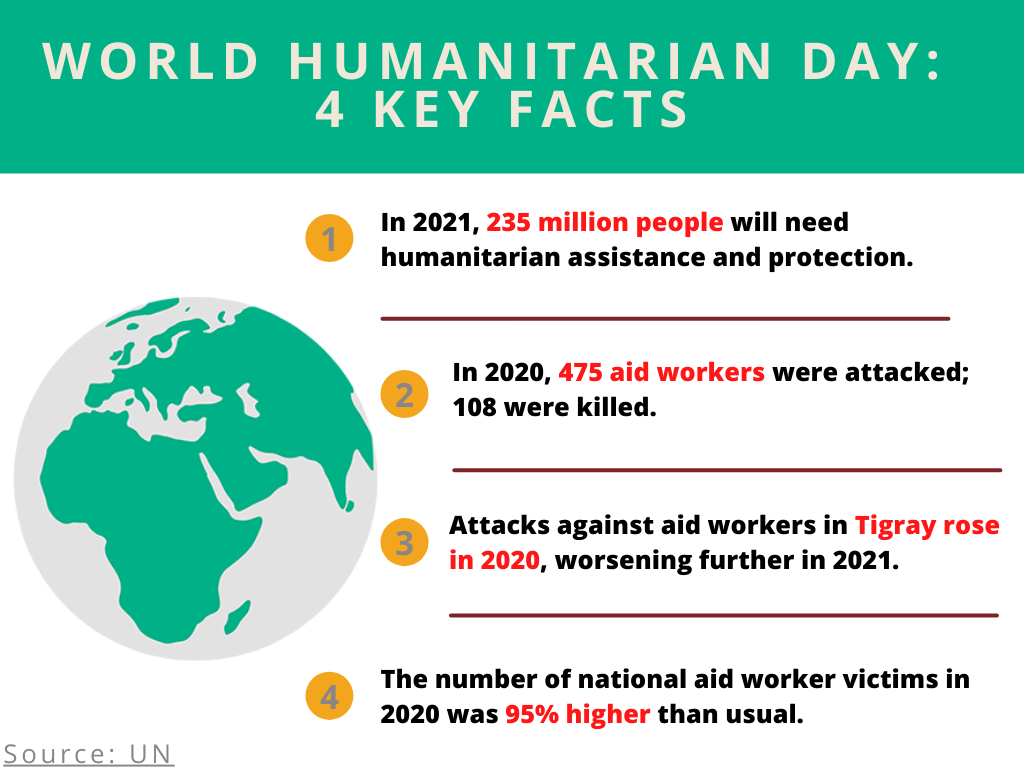
When is World Humanitarian Day?
World Humanitarian Day is celebrated on 19 August every year. 2021 is the twelfth year the humanitarian community has marked the day.
This year, World Humanitarian Day is focused on the climate crisis. Climate change and its devastating effects are wreaking havoc across the globe at a rate where communities on the front line and humanitarians cannot manage. The world’s most vulnerable people have contributed least to the climate emergency, but are being hit the hardest.
As well as celebrating humanitarians all around the world, World Humanitarian Day 2021 highlights the immediate consequences of the climate emergency for the world’s most vulnerable.
This year, it also comes more than 16 months into the Covid-19 pandemic, as aid workers around the world continue to overcome travel bans and other access hurdles to get aid to families who need it most. The pandemic has made humanitarian work even more difficult, as increased health risks, a lack of access and governmental restrictions have left communities and NGOs on the frontline of the response.
Real life stories from real life humanitarians
This year we’re paying tribute to the incredible humanitarians we work with who share our vision to see a world where no family is left without shelter.
Right now we need our partners more than ever – and the feeling is mutual. During the coronavirus pandemic, travel restrictions mean that collaboration with humanitarians has never been more important.
Meet Mary, Mustafa, Edwige and Domi, four humanitarians who are playing an essential role in making sure disaster affected communities receive much-needed ShelterBox aid.

Mary
Mary works in Cameroon with our partner IEDA Relief. She is one of the humanitarians getting ShelterBox aid to families in Minawao Refugee Camp.
When Mary finished her studies, she didn’t dream of becoming a humanitarian. But now she can’t imagine being anything else. ‘Being a humanitarian remains probably the most memorable action I have accomplished in my life so far; it’s an indescribable human experience. I feel truly useful in this life.’
The work can be risky, particularly during the pandemic, but Mary shares our desire to see a world where no family is left without shelter. ‘I would love to see each individual staying in decent shelters. In fact, a shelter is the most precious and secure item an individual can ask for.’
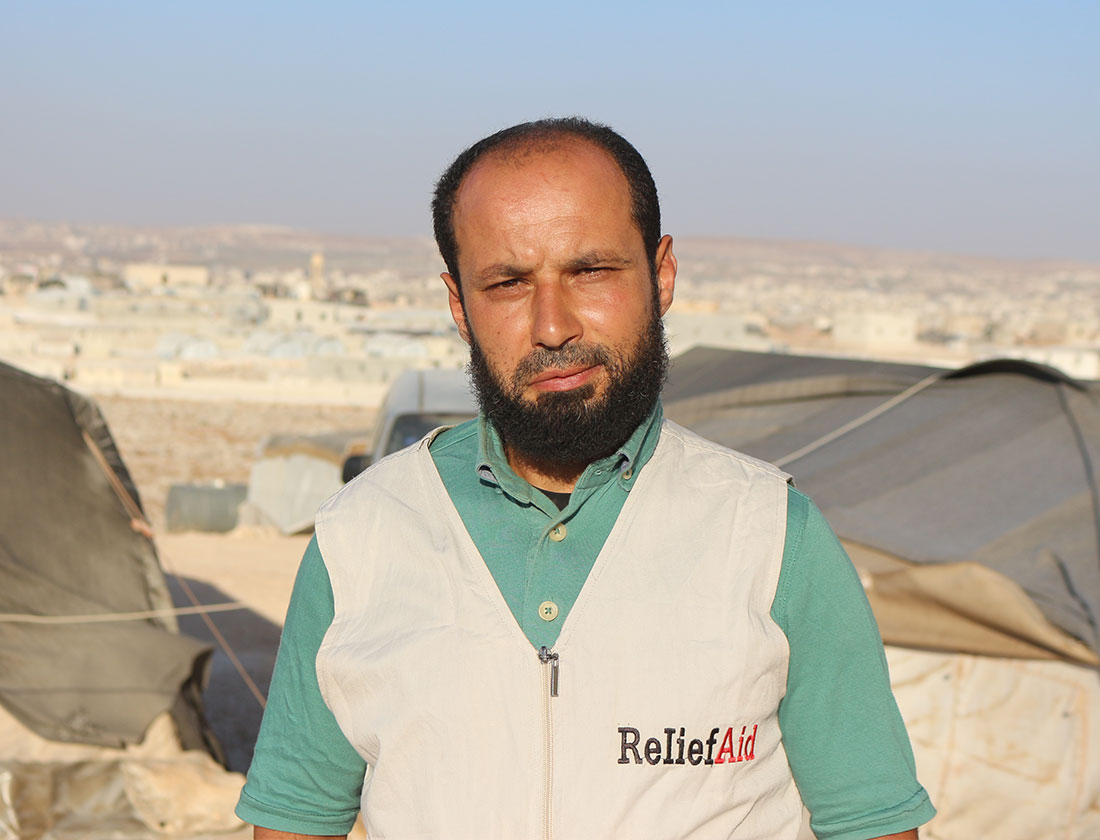
Mustafa
Meet Mustafa, a Hygiene Control Officer working with ReliefAid. ReliefAid are one of our critical partners in Syria, helping us provide aid to families affected by the ongoing conflict.
Despite working in incredibly challenging circumstances, Mustafa is motivated to help people who need it most. ‘The most wonderful thing about humanitarian work is that I do not stand helpless. I can do my duty towards those in need.’
Working on the frontline to support families through the pandemic has been challenging for Mustafa. ‘Our work requires contact with many people and communities, which exposes us and our families to great danger.’ But knowing that the need for our support is greater than ever drives Mustafa to continue, taking the necessary precautions and persevering through the difficulties presented by .
Mustafa finds his work rewarding: ‘What makes me optimistic is that I am able to change and improve the bad conditions of families. When I see the smile on people’s faces it is a great thing.’
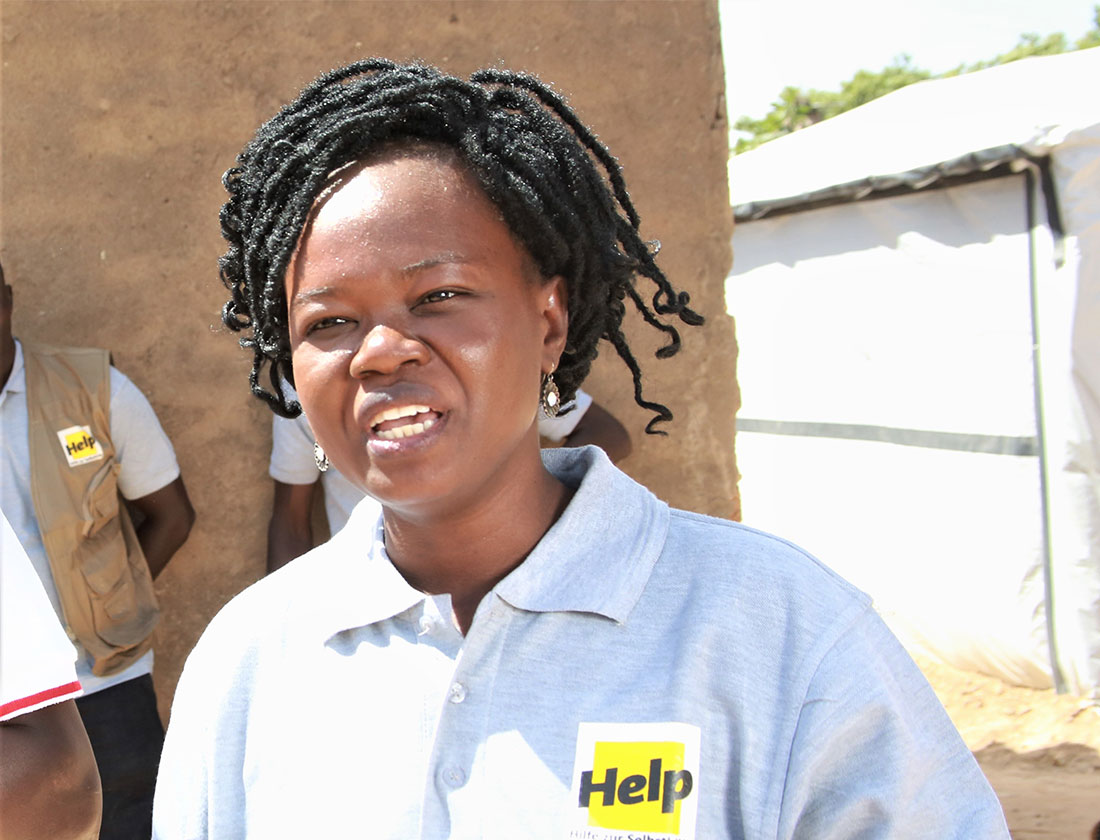
Edwige
Edwige works with our partner, Help, to deliver essential aid to families in Burkina Faso.
She works hard to serve her fellow people in times of need. When we asked Edwige what being a humanitarian meant to her, she said: ‘To be a humanitarian is to be devoted the cause of human beings in distress, wherever life is threatened, where the smile is taken away.’
Working through the pandemic has had a huge impact on Edwige’s work. Distributions of aid items, such as the tarpaulins, kitchen sets, water carriers and sleeping mats that ShelterBox has provided in Burkina Faso, are limited to groups of 50. Generally, COVID-19 has slowed down the work that many humanitarians do.
But she doesn’t lose hope. ‘What gives me hope for the future is that there are always men and women who are committed and ready to serve their fellow people in times of need. More and more, men and women are realizing that progress only makes sense when it makes people happy.’
For Edwige, there is nothing more powerful than a smile. ‘When we manage to tear away a smile from those who have lost it, to restore hope to those who have lost everything, that is where I get my strength.’
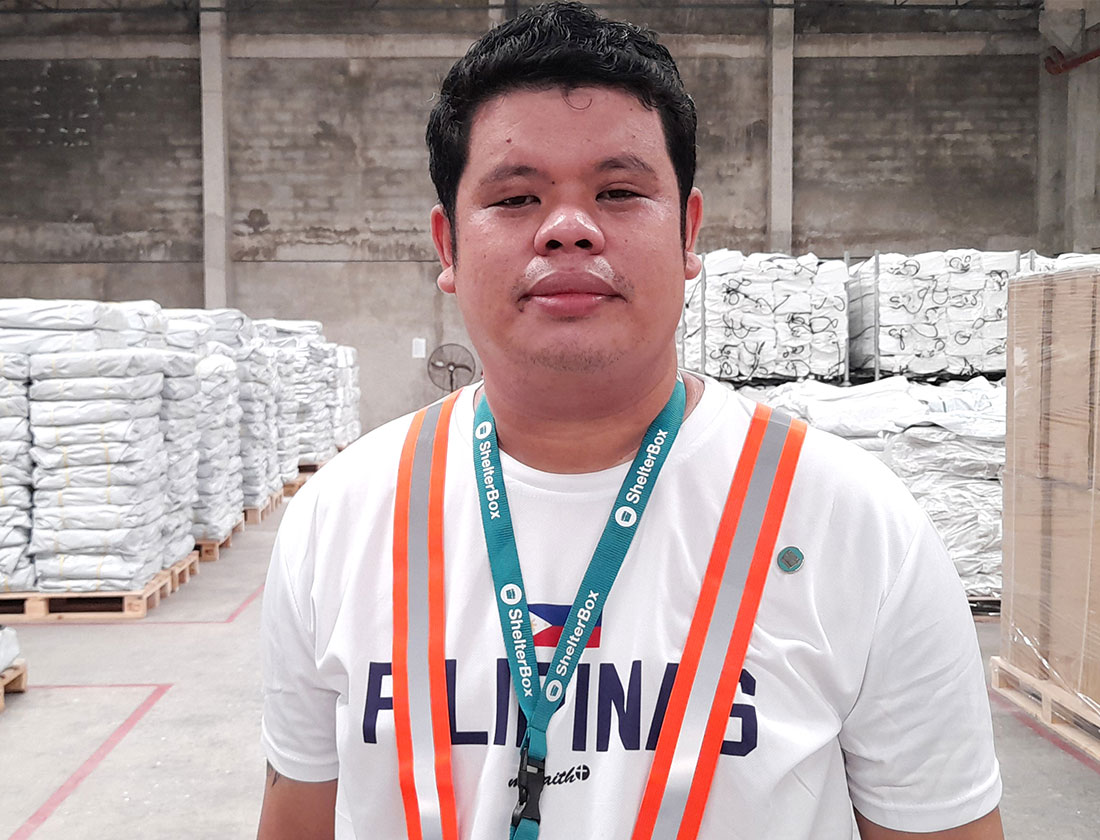
Domi
Domi works as a Warehouse and Logistics Supervisor at the ShelterBox Operations Philippines office.
He wanted to work for ShelterBox after seeing families in ShelterBox tents after a Typhoon in 2013. ‘I was amazed. I went away and researched more about ShelterBox.’
Domi enjoys taking good care of our aid items, knowing that it will help people in need. ‘My job gives me a sense of fulfilment and happiness knowing that I can use my experience, knowledge and skills in helping thousands of families.’
The challenges of the pandemic have taught Domi to be resilient. ‘The virus may affect a person physically, mentally and emotionally. This pandemic [has] taught me to be more creative and resilient in dealing with my every day work’.
Humanitarians like Mary, Mustafa, Edwige and Domi enable us to go the extra mile and reach more people that desperately need our support. When we work together, we each play an essential role in making sure disaster-affected communities receive the help they need.
Donate to support our work today.

